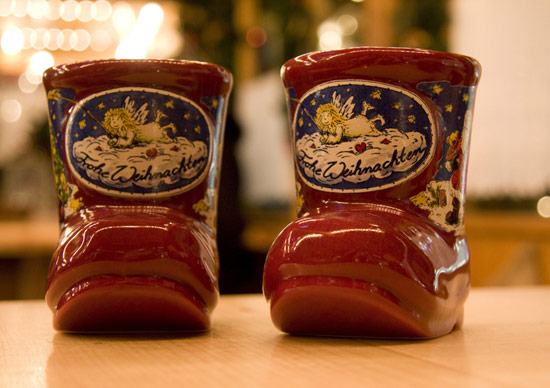Culture and Society: Gift Giving
General
Gifts are very much a part of many social occasions in Germany. Birthdays, weddings, and certain holidays are events where presents are expected. Germans also tend to bring a gift for the host when shown hospitality. Gifts generally are small unless the relationship between the two parties is of a romantic or familial nature.
Hospitality Gifts
When invited to a home, Germans will commonly bring a gift such as a bouquet of flowers or a box of chocolates. Flowers are offered in odd numbers, except for groupings of 13. Yellow tea roses are a common choice. Chocolates will usually be of high quality, as average-quality chocolates are widely available in Germany, even in discount stores.
A textile product such as a silk scarf is viewed as an acceptable gift, especially if coming from a different region of the country. A visitor may also bring a bottle of imported wine from a country such as France or Italy, or even a domestic one if substantially different from the locally produced German wines.
As Germans place high value on reading, a book is a welcome present as well. Books about food or specific regions are popular choices, as are ones that cover a subject of particular interest to the host.
In Germany, gifts are usually opened when received. In addition, guests often send a handwritten thank-you card to the host the following day.
Personal Gifts
The birthday party tradition of cake, candles, and presents has its roots in Germany, so gifts are always expected at birthday parties. Gifts are usually personalized with the tastes of the recipient in mind, but tend not to be very expensive to avoid putting the recipient under obligation.
At Christmastime, children receive presents such as chocolates and candies from St. Nicholas, usually in shoes placed beneath their beds, on December 6. Gifts kept under the Christmas tree are exchanged on Christmas Eve.
According to an old German tradition, when a bride’s furniture is brought to her new home, her husband should greet her at the door and offer her beer. Then the bride should present him with a shirt she has made herself, shoes, and the key to her bridal chest. Modern wedding gifts, however, are chosen according to the tastes of the couple and the budget of the giver. Traditionally, the evening before the wedding, the couple participates in a Polterabend, an “Eve of the wedding party.” This party is usually held at the home of the bride’s parents and allows guests as well as friends and acquaintances that aren’t necessarily invited to the wedding to come and extend good wishes. Often, guests will bring their wedding gifts to this event so as not to burden the couple at their wedding.
Business Gifts
Germans consider small gifts a polite gesture in a business context, although they are not necessarily expected. A German businessman may bring a token gift, however, especially when contacts are made for the first time. Expensive presents are usually avoided early in a relationship, as they might be misinterpreted as bribes, especially when offered in private. In fact, German law even places a monetary limit on the price of business gifts.
Generally, Germans do not exchange gifts during business meetings. However, small gifts are sometimes given on the successful completion of a project.
Appropriate business gifts include coffee table books, calendars, quality pens, calculators, and other office items with the visiting company’s logo. Bourbon, whiskey, or other imported liquors are sometimes given to executives. Larger business gifts are usually given publicly.
Taboos
Clothing, perfumes, and toiletries are considered too personal to be given as gifts unless the relationship is romantic or familial. Red roses also symbolize romantic intentions and are usually only given when the relationship is heading in that direction. Carnations suggest mourning, and lilies and chrysanthemums are used in funerals, so Germans avoid these types of flowers as gifts. Heather is also shunned in any bouquet as it is commonly planted in cemeteries. Pointed objects like knives, scissors, or umbrellas are considered unlucky wedding gifts. Beer and local wines are not normally given either, especially as hospitality gifts, since to do so gives the impression that what the host is offering is not good enough.
Article written for World Trade Press by John E. Roper and reviewed by Kristina Reinsbach.
Copyright © 1993—2025 World Trade Press. All rights reserved.

 Germany
Germany 
